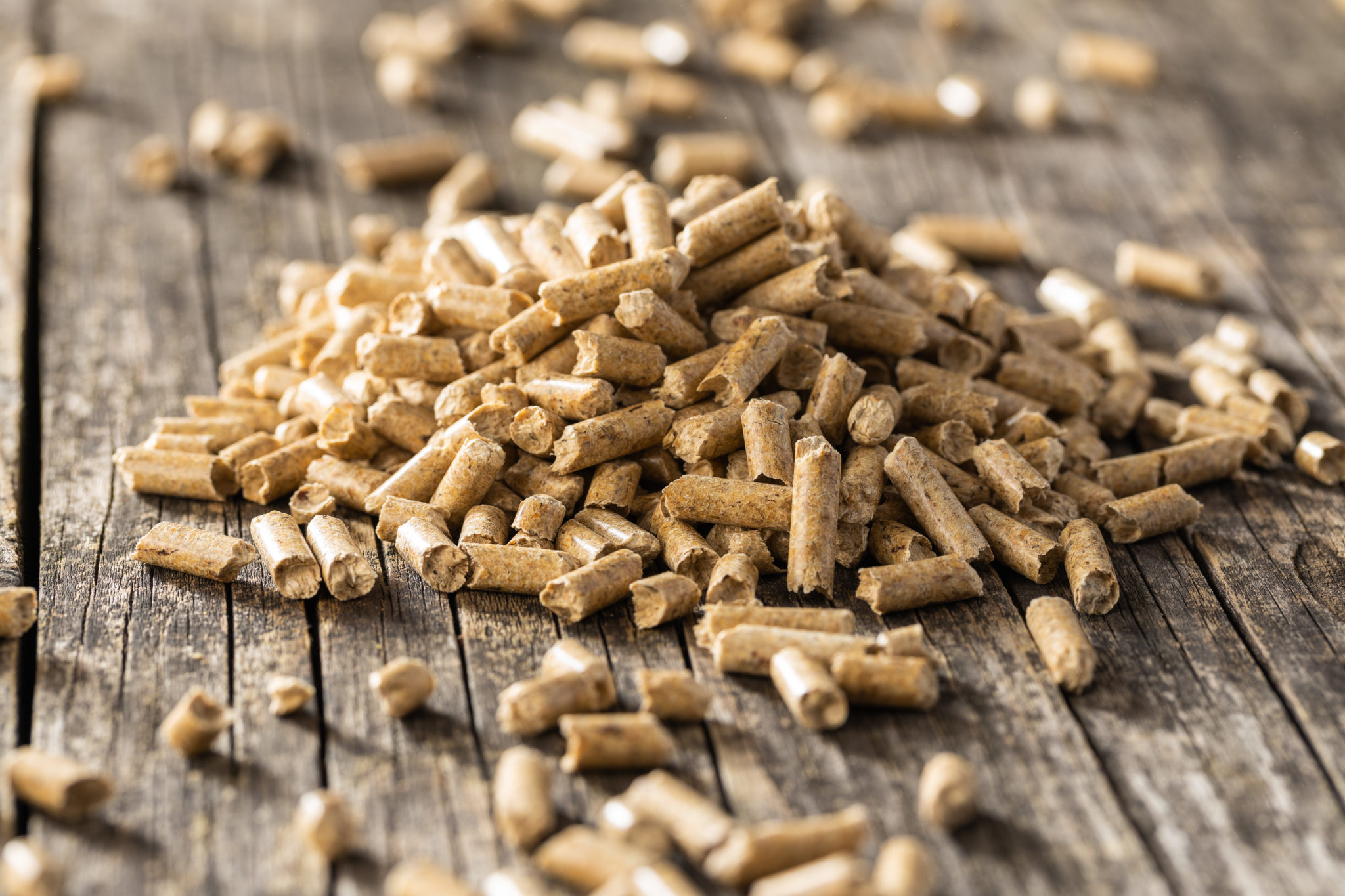
What is Biomass Fuel?
Biomass fuels are comprised of organic materials and are used as convenient biofuel to power stoves, boilers, power plants, as well as to heat industrial and residential buildings. Common sources of biomass pellet feedstocks include animal waste, sawdust, forest residue, crops—like soy or corn—and wood. These materials are dried and finely ground before being compressed into small, energy-dense pellets.
The Advantages of Wood Pellets
Biomass wood pellets have several advantages over other forms of energy. Like fossil fuels, biomass wood pellets do release carbon. However, because wood pellets are sourced from organic material, they only release the amount of carbon absorbed by the plant when it was alive, making wood pellets carbon-neutral. In addition, biomass wood pellets are largely renewable when produced with sustainable forestry.
When compressed, wood pellets have a high heat value, low moisture content, and low combustion point, all of which are important factors for the efficiency of the industries utilizing them. Biomass pellets also burn cleanly and produce very little ash.
Best of all? The production of biomass wood pellets offers the opportunity for manufacturers to reduce wood and agricultural waste, all while creating another stream of revenue for their operation.
Creating a Profit from Wood and Agricultural Waste
With millions of tons of material entering landfills each year, anything your operation can do to reduce its waste is a good thing. For businesses that produce a large amount of wood and agricultural waste, biomass wood pellet production offers the opportunity to create a secondary product that’s better for the environment. Handling their own waste can also help companies raise their profits by avoiding landfill tipping fees.
What’s more, the wood pellet industry is growing and is expected to continue to do so, especially as global awareness regarding environmental sustainability continues to expand. There is demand for biomass fuel in both residential and industrial sectors, giving operations ample opportunities to enter the market.
How Rotochopper Can Help
While exact specifications differ depending on the market and location, waste needs to be ground small enough to be compressed into pellets. Rotochopper’s grinders are built to efficiently handle high volumes of wood waste and agricultural residue without sacrificing particle size consistency. In addition, our commitment to our “Perfect in One Pass” solutions helps ensure your operation won’t need to waste valuable uptime with unnecessary regrinding.
For those operations looking to expand into the biomass wood pellet industry, Rotochopper is ready to help. Contact one of our expert sales representatives to learn more about how we can help your increase profits within the biomass fuel market.
